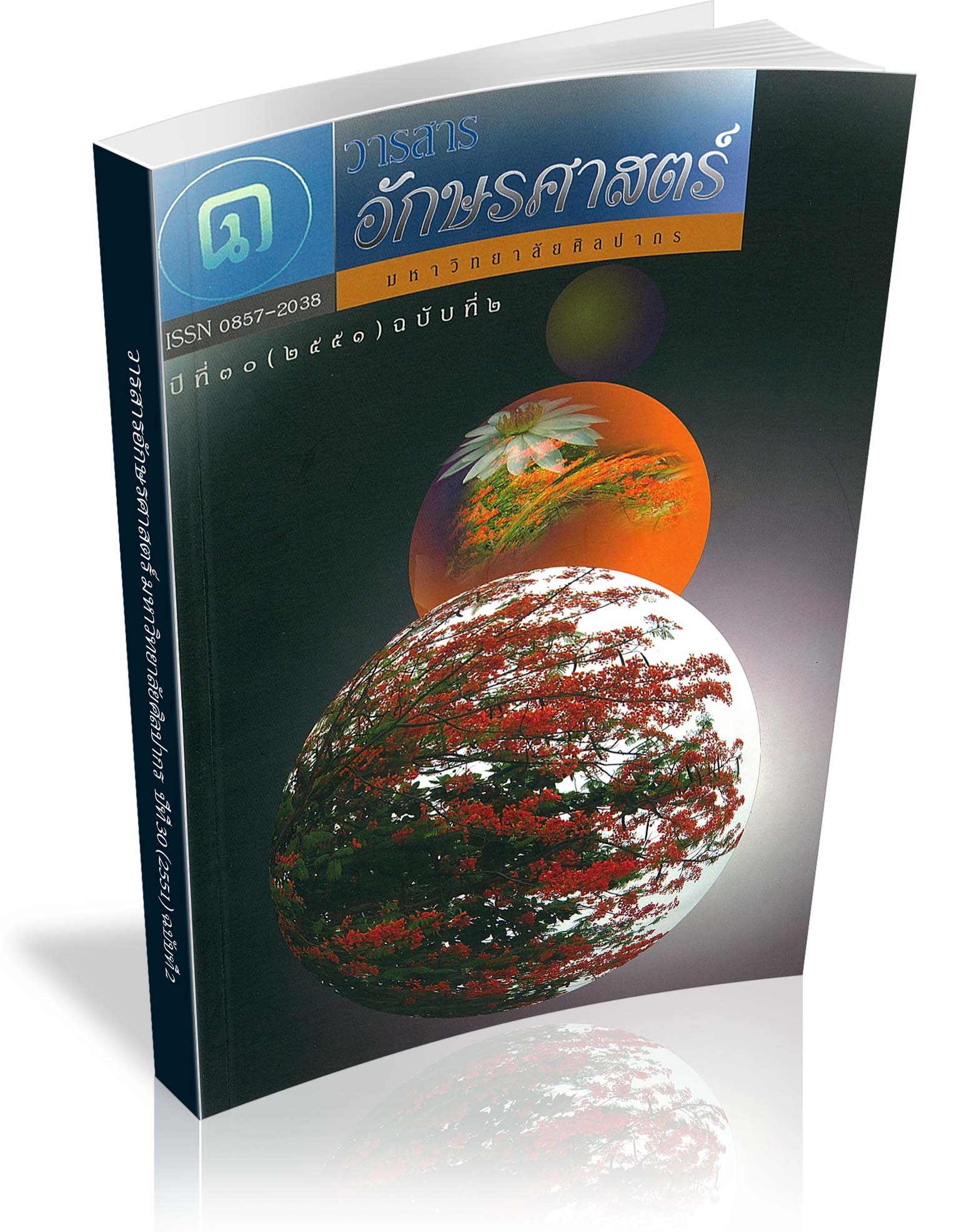"Perfectly Virtuous Woman” : Constructed Identity of Khmer Women for the Nation
Keywords:
constructed identity, Khmer women, Perfectly Virtuous WomanAbstract
This article aims to explain the concept of the “Perfectly Virtuous Woman” as the Khmer woman's constructed identity, which has changed throughout Khmer history.
The concept of the “Perfectly Virtuous Woman" (165 pó Bs FRSİ) refers to the practices of women : proper manners, roles according to their social status as the perfectly virtuous daughter, wife and mother, and how to live free of sexual denigration. With no single or fixed meaning, the concept has been interpreted, adjusted and added new meanings throughout Khmer history from Pre-Vietnamization until the present time.
Prior to Vietnamization, the concept had been presented through role models in the oral tradition and literature influenced by Buddhism. During Vietnamization, the concept was applied to save the nation from assimilation. During the French Protectorate, the concept was modified by the Civilizing mission of the French to modernize women. Under the Khmer Rouge, the concept was replaced by the equality of men and women as the children of Angkar. After liberation from the Khmer Rouge, the concept was revived to rebuild the country. From the post UNTAC phase until the present, the concept has been re-introduced to understand Khmer society.
Throughout Khmer history, the concept has been constructed by the ruling class. Therefore, the concept contains hidden political objectives and has been applied to force women to perform various kinds of state assignments without question.
The concept of the “Perfectly Virtuous Woman” discusses what a Khmer woman should, be and what in fact she is. Whether the concept of the “Perfectly Virtuous Woman” will survive in the twenty-first century or not is still the main question for Khmer women.
Downloads
References
แชนเลอร์, เดวิด. ประวัติศาสตร์กัมพูชา. แปลโดย พรรณงาม เง่าธรรมสารและคนอื่น ๆ. กรุงเทพมหานคร : มูลนิธิโครงการตำราสังคมศาสตร์และมนุษยศาตร์, ๒๕๔๖.
Amratisha, Klairung. "The Cambodian Novel : A Study of its Emergence and Development.” Ph.d. Dissertation, University of London, School of Oriental and African Studies, 1998.
Enloe, Cynthia. Bananas, Beaches, and Bases : Making Feminist Sense of International Politics. Berkeley, CA : University of California Press, 1990.
Fiske, B Edward. Using Both Hands : Women and Education in Cambodia. Manila : Asian Development Bank, 1995.
แกม บุณณา. “พิการเพราะชาติเป็นเรื่องสูงส่งยิ่งนัก.” จุลสารนารีปฏิวตฺตกมฺพุชา ๖ (๑๙๘๗) : ๓๑-๓๒.
ฆีง หก ดี. ทิฎฐภาพ ทูเทา ไน อกฺสรสาสฺตฺรแขฺมร. Paris: L’ Harmattan, 1997.
รตนมาลี. “เกียรติยศของฉันร่วมกับฝีมือของพี่น้องกรรมกรทั้งหมด.” จุลสารนารี รัฎฺฐานีภฺนํเพญ ฉบับพิเศษ (มกรา ๑๙๘๖) : ๘, ๑๒.
Downloads
Published
How to Cite
Issue
Section
License
ผู้เขียนบทความต้องยินยอมในข้อกำหนดต่าง ๆ ของวารสารก่อนส่งบทความตีพิมพ์



